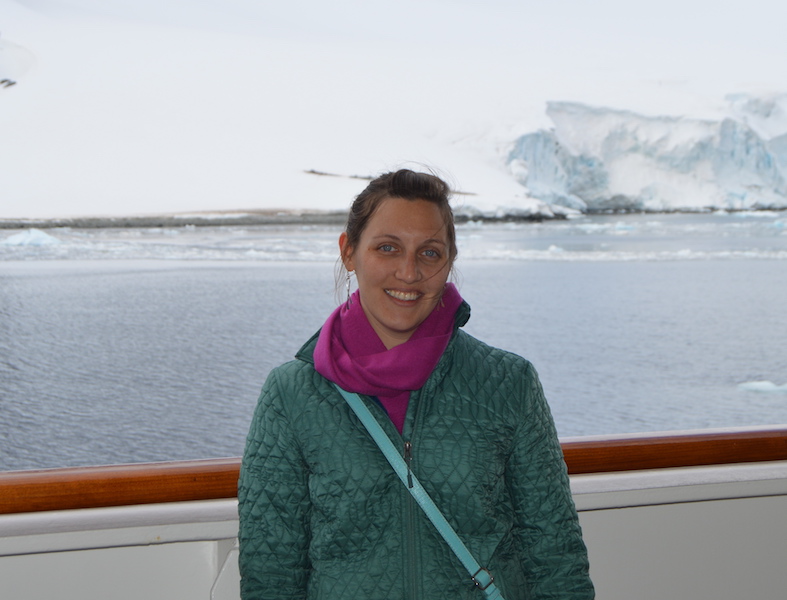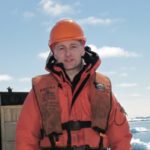Nicole Waite
Polar Scientist in the Spotlight
Learn about all sorts of careers that polar scientists have as we explore their different research areas through the featured Polar Scientist of the Month.
Nicole Waite
Research Technician, Rutgers University, Center for Ocean Observing LeadershipWhat do you do?
I study phytoplankton in Antarctica and how the communities are changing (or not changing) over time as climate changes and the ocean responds. I use water and phytoplankton samples, bio-optical instruments, and gliders to get a picture of the actual phytoplankton as well as the environmental conditions they are experiencing.

What is the best thing about your job?
Even when I’m in Antarctica for 5 months working long hours in all kinds of weather conditions, it doesn’t actually feel like work. The field work, being out collecting water samples on the zodiac is the most fun, but also the variety of field and lab work (both while in Antarctica and back in New Jersey) also means that you never get bored!
What is the most important tool you use for research?
A filter rig, which we use to collect the phytoplankton out of our water samples. Once we filter a water sample and have our phytoplankton on a filter, we can measure how much phytoplankton there are (chlorophyll) and what types of phytoplankton (by looking at their pigment composition) and we can even look at them under a microscope and take pictures of them.
Why is what you do important?
Probably most importantly is knowing that the work I do is super relevant and crucial to understanding how the oceans are changing as climate changes. Phytoplankton are the base of the ocean food web and understanding how the phytoplankton change allows us to better understand how higher trophic levels (whales, penguins) and the ecosystem as a whole will be impacted with a changing ocean.




